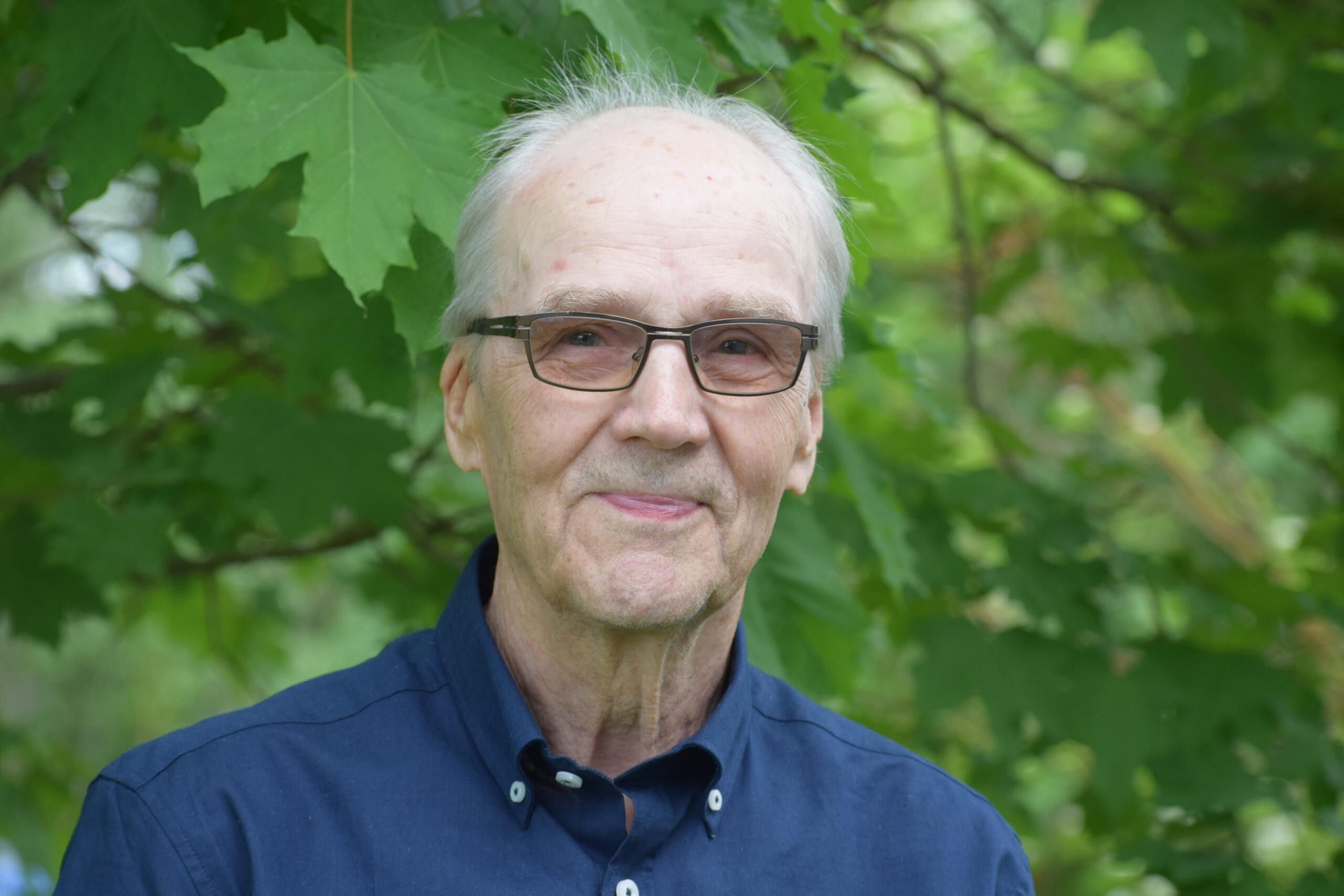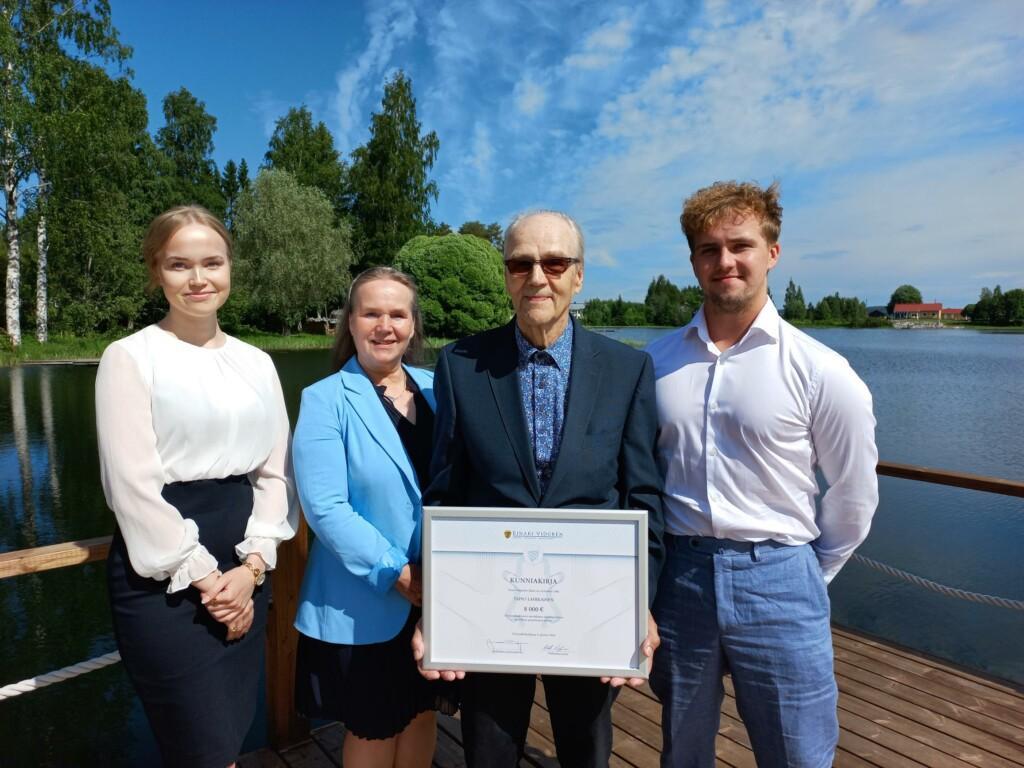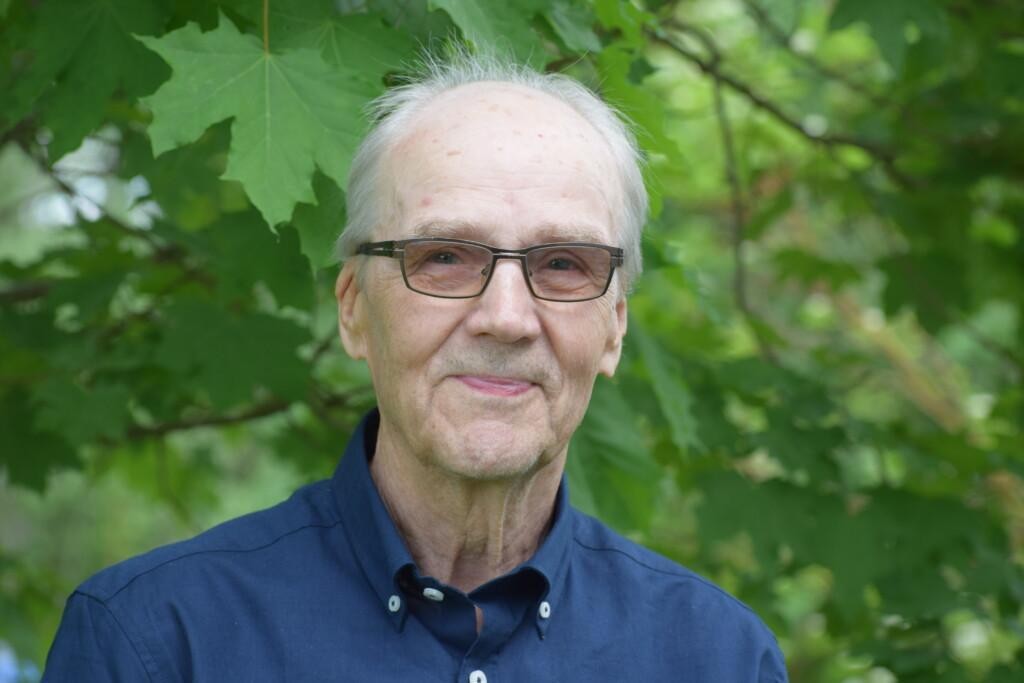
Tapio Lahikainen: A dream job for others as well
Tapio Lahikainen must have a magic touch. The quiet and modest forest machine contractor has been an idol for many younger ones looking for a career. Many small boys have watched Tapio working in forests, many of whom have ended up as contractors in the forest industry.
Tapio Lahikainen has been in his dream job for more than 60 years and still continues to operate a forest tractor today, and why not, given that Tapio is still in excellent condition, and above all, full of motivation.
“I was already thinking about quitting, but when Aleksi started in this business, I decided to keep going,” Tapio says.
Aleksi Kiuru is the son of Lahikainen’s daughter Tarja who became engaged in forest machine contracting in his grandfather’s footsteps. The company operates in a large area in cooperation with Kuopio-based FinnHarvest Oy and Veljekset Hokkanen Oy from Kangasniemi.

Aleksi is one of the many boys inspired by Tapio to join the forest industry. As a small boy, Aleksi went where his grandfather went and transported trees for Tapio when he was still in comprehensive school. Their roles have since reversed. Currently, Aleksi runs the company and Tapio can enjoy working in forests, something he has always enjoyed. Transporting trees pulled by horses with his father was more fun than going to school, especially during the last winter of primary school.
Tapio chose the right job for him, allowing him to be himself when working in forests. Not even poor weather has lowered his spirits, as long as machines have run properly.
Lahikainen started his own business in 1962. The Fordson Major tractor powered the VK 16 debarking machine. Lahikainen eventually bought the machine from Enso-Gutzeit. The VK 16 was better than Lahikainen’s previous Kuori-Juho, a machine he says was mainly good for making hay poles.
Lahikainen says that starting a business in the forest industry may be a challenge today, but back then it was the normal way to go. Forest work was in high supply, and Lahikainen was asked to come to work. A Major was found in Tourula in Jyväskylä, costing 4,000 marks at the time.
Lahikainen’s first forest machine was the 909 Lokomo, which he bought in 1974.
“Old men used to wonder whether I would make it and how I can afford the machine. Of course, I could’ve bought much more besides at the same price.”
“I’ve always kept going. Machines used to require much more repairs than what they do today. But even if a machine broke down, we didn’t make a fuss of it. Machines were always fixed, even if it took several days.”
“I’ve had to work hard and be persistent. You just have to believe in yourself and never give up.”
The contracting relationship with Enso-Gutzeit continued for almost 50 years from the 1960s until 2010. During that time, Enso-Gutzeit changed its name first to Enso and later to Stora Enso, the name it still carries today, and Lahikainen slowly developed his own business. His wall is adorned with a quality certificate given by Stora Enso in 1999, and a quality prize stands proud on a shelf.
“My company has never been big, but we’ve expanded slowly over time. We’ve made good results and done a lot of good having started from scratch. Forest owners have liked us because we’ve never reached for the stars and our machines have always been on the smaller side,” Tapio says.
“I’ve been asked to start harvester contracting, but being a forwarder man, I never went down that road.”
The importance of cooperation cannot be over-emphasised. Harri Kiuru, a transport contractor and the spouse of Tapio’s daughter, transports machines from one worksite to the next. Lahikainen has also worked with the Hallberg brothers in eastern Häme, the Piironen brothers in North Savo, and the Hokkanen brothers in Kangasniemi. Esa and Hannu Hokkanen were also inspired by Tapio’s example to start forest machine contracting.
Lahikainen’s career spans so many decades that tall trees are already growing at his first final felling sites. Now he can return to the same sites to harvest new trees.
His daughter says that her father always came home from work in a good mood. Perhaps the way he enjoyed his work so much and his positive attitude have been keys to success and his long career. After all, Lahikainen has acted as an example for younger generations and conveyed a positive image of the forest industry. Tapio’s granddaughter Anni-Maria Kiuru is also studying forest sciences at the University of Eastern Finland to graduate as a forest manager.
In forests in both joy and sorrow

Tapio Lahikainen starts laughing when he remembers saying as a young man that “this is no job for old men”. Currently, his mind is filled with gratitude for having worked and still being able to work in forests.
He is also grateful for never having had to work alone. The way Lahikainen talks about his business and career speaks volumes: he has worked with his family and with his family’s help.
“You can’t do this on your own; you need the support of your family.”
His wife Lahja was the strongest supporter of the company from its earliest days. Tapio was able to focus on forest work, while Lahja took care of their home and the company’s finances. She packed a healthy lunch for Tapio and even helped in machine repairs. A story of certain New Year’s celebrations passes in the family. While others were waiting for the year to change, Tapio and Lahja pulled a sled to carry a new battery to one of their machines on a freezing cold moonlit night. The year changed and the machine started.
The family sometimes made weekend trips to logging sites on various islands in the Puula lake. When logs were still driven from islands by water, the log bundler hired by the company had an important job. He dropped log bundles into water and tied them to the main cable. A tug then picked up all bundles at the same time. The time of the log bundler was not to be wasted, and Tapio says that the whole family used to go to one of the islands during weekends to transport trees from the most difficult and distant locations to the shore. When the log bundler then resumed work after the weekend, everything ran like clockwork and no time was wasted.
Tapio is grateful for the lifetime achievement award and would like to dedicate it his wife Lahja who passed away last autumn. Forests have also given Tapio comfort in sorrow. Forests have room for all emotions.